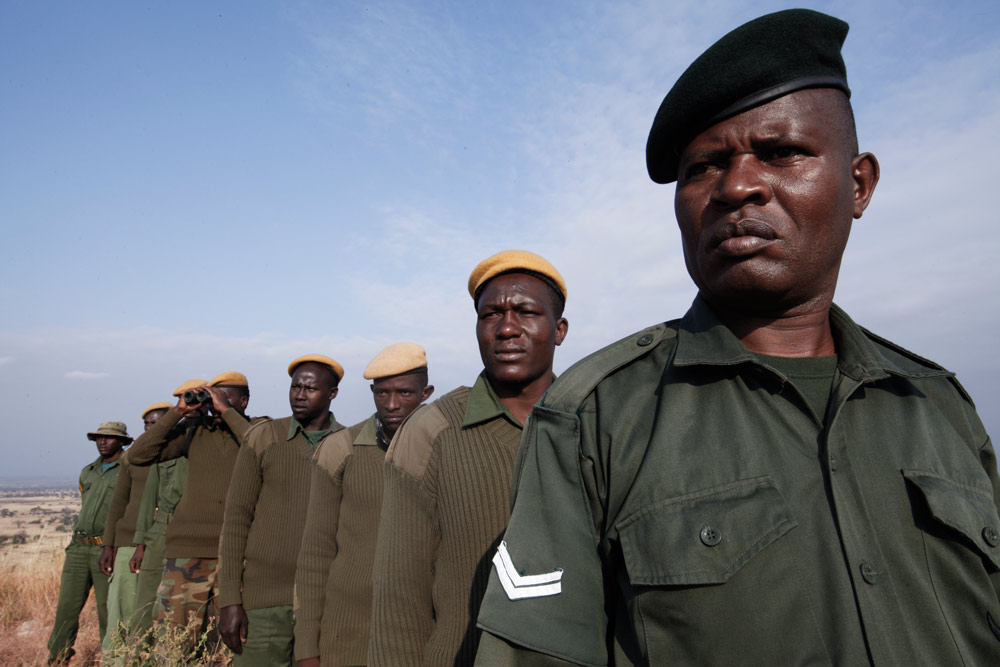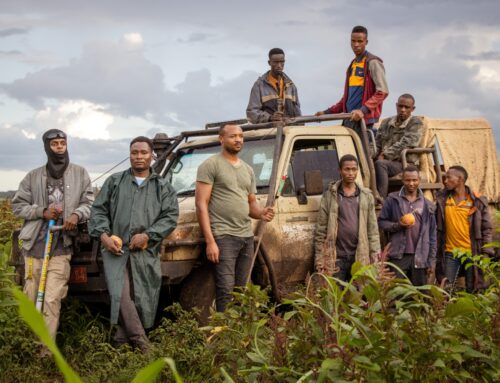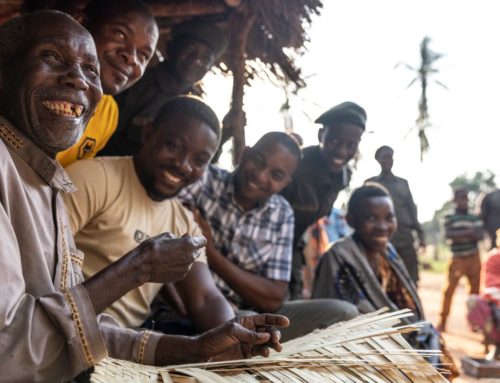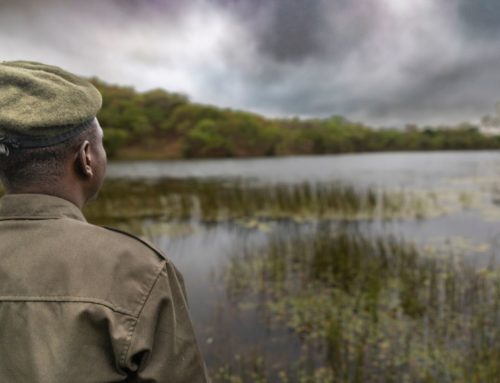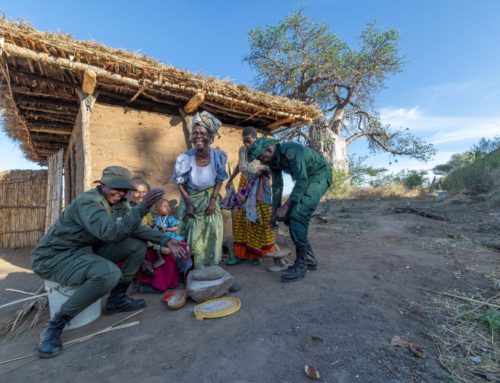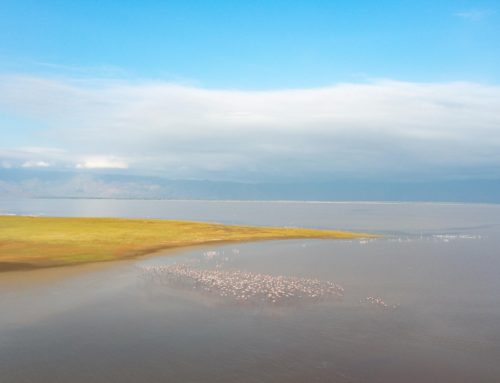Just as dusk eased over the plains of Randilen WMA, the rangers made one last loop on patrol. And that’s when they spotted him, a lone silhouette marching along the horizon.
It took less than a minute for the Land Rover to track down the figure and cut him off. The guys in green soon had him surrounded. He surrendered.
And that’s how the upstart Randilen WMA team made their first big bust earlier this year. The suspect had carried a modest arsenal, including a shotgun, ammunition, hacksaw, machete, and additional equipment often used by elephant poachers. At the time of his apprehension, the poacher had been heading toward Tarangire National Park.
In less than three months of full-scale operations, Randilen WMA has led the charge alongside government authorities in investigations resulting in four arrests of suspected poachers.
Most recently on April 8, the rangers, also known locally as village game scouts, received intelligence about illicit hunters having killed multiple impalas and elands outside of the WMA and putting up the meat for sale in a nearby village. The following morning, police search warrants of two poachers’ homes led to the discovery of the bush meat. Authorities made one arrest and are pursuing one other suspect.
In one of those cases, the poacher had left his young children at home to sell the meat for 2,500 Tanzanian shillings per kilo (approximately $1.30 USD). By comparison, beef currently sells in that area for around 6,000 Tanzanian shillings ($3.15 USD) and goat meat for 5,000 ($2.63 USD), thus revealing how the bush meat trade, with such cheaper prices, can thrive in East African villages and towns.
“The Randilen WMA team will add to all of the forces protecting the Tarangire-Manyara landscape,” said Abraham Lerumbe Kaaya, Honeyguide’s new trainer/commander for Randilen. “They will also support communities and work alongside them.”
Overcoming early challenges
Spread across 315 square kilometers of wooded savanna, the Randilen Wildlife Management Area covers the northeastern arc around Tarangire National Park and provides key migratory routes for elephants and other wildlife heading to Manyara Ranch and also other key dispersal areas. Randilen is home to a number of prominent tourist lodges and camps, such as the famed Tarangire Treetops, giving the fledgling community-based conservation area great promise and hope that it can eventually become self-sustaining.
One year ago, Randilen WMA officially launched and deployed its ranger team, having received early support from the African Wildlife Foundation. Since then, via significant funding from Big Life Foundation and The Nature Conservancy, Honeyguide has worked alongside the WMA on initiatives in wildlife and resource protection and better governance and management.
Just six months ago, though, it would have been difficult to imagine Randilen gaining headway so fast, even making triumphs over poachers. At the time, the district government had suspended all activities in the community-based conservation area as it sought resolution to internal conflicts sparked over cattle grazing issues and additional misunderstandings.
After overcoming such growing pains, Randilen WMA is up and running again and has boots back on the ground. They will now be able to better coordinate resource protection and other activities with teams throughout the Tarangire-Manyara landscape, including government rangers with Tarangire and Manyara National parks and community rangers from Burunge WMA and Manyara Ranch.
But Commander Kaaya knows the daunting tasks ahead of them will take time. Besides threats to Tarangire-Manyara’s great elephant population, the illicit bush meat and charcoal trades are also running rampant throughout the area. Increasing human populations and stresses on natural resources can also easily cause conflicts.
For Honeyguide and many of our partners, however, work in community-based conversation goes far beyond wildlife and habitat protection alone. Honeyguide employs an integrated five-program approach that also includes intensive efforts in human-wildlife conflict prevention, governance and management, enterprise development, and environmental education.
“We are here to strengthen communities and not just protect wildlife,” said executive director, Damian Bell. “It’s not something that will happen overnight, but we are committed to working with our many partners for the long haul.”
All four suspected poachers caught in and around Randilen WMA since January 2015 are in custody in Arusha, Tanzania and awaiting trial. Look for updates and more stories about Randilen WMA in May 2015.
Within the Tarangire-Manyara landscape alone, Honeyguide helps train, manage, and support Randilen WMA, Burunge WMA, and Manyara Ranch through funding from Big Life Foundation, The Nature Conservancy, and the African Wildlife Foundation. In total throughout northern Tanzania, Honeyguide helps implement related community-based conservation initiatives across more than 5,000 square kilometers (1.2 million acres), working with a number of partnerships and coalitions for greater outcomes and outreach.

